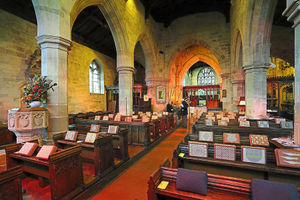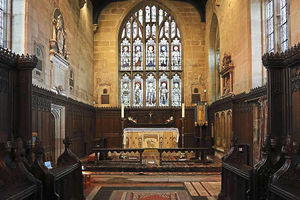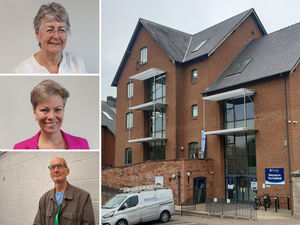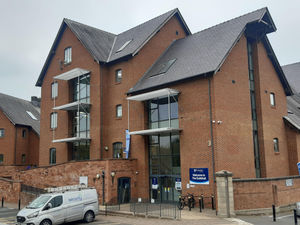Cash boost for Shropshire's 'Little Nell' church
A Shropshire church, said to be the resting place of a character from one of Charles Dickens' novels, is among the first to have been awarded a new grant.
St Bartholomew's in the village of Tong, near Shifnal, is where Little Nell from Dickens' The Old Curiosity Shop is said to be buried.
And it is now among 12 churches from across the UK that have been awarded the first Project Development Grants from the National Churches Trust. The charity offers support and help with repair to the UK's churches.
St Bartholomew's, a Grade I listed church, will receive £6,000 to help with an ongoing project to restore the fabric of the church, and promote its heritage potential.
This particular money will go towards developing final plans to install toilets and a servery. Currently, all food and drink is brought in from the village hall, and visitors must make a five-minute walk to use the toilet. Other improvements will reduce damp and draughts.

The church attracts hundreds of visitors each year because of its literary connections as the churchyard is supposed to be the burial place of Little Nell from The Old Curiosity Shop, and a fictitious gravestone was erected by an enterprising verger in about 1910.
The epitaphs on one of the tombs in the church are accepted to have been written by Shakespeare. But people also visit to see its unusual perpendicular Gothic interior. Most of the funds already raised by the community have already gone towards urgent roof and lead repairs.
The project development grants, a new funding stream from the National Churches Trust launched in June 2016, allow churches to plan high quality repair and community projects. This includes preparing applications to major grant funders such as the Heritage Lottery Fund.
Claire Walker, chief executive of the National Churches Trust, said: "I'm delighted that 12 churches across the UK are able to plan for the future thanks to the National Churches Trust's Project Development Grants.

"Project Development Grants help churches become more sustainable by allowing them to examine the challenges facing their buildings.
"This includes working out how best to fix major structural problems and making it possible for churches to better serve local people by adapting their layout and installing modern facilities such as kitchens and toilets."Finding out what work is necessary, and how much it will cost, is one of the hardest parts of planning a major church repair or modernisation project.
"With the help of the National Churches Trust, more congregations can help ensure the future of their church building for many years to come."



